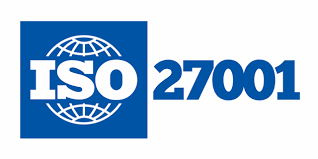
In today's digital age, where data breaches and cyber-attacks are rampant, businesses need to prioritize information security to protect their assets and gain a competitive edge. ISO 27001, an internationally recognized standard for information security management, offers a robust framework that enables organizations to establish, implement, maintain, and continually improve their information security management system. By leveraging ISO 27001, businesses can not only enhance their credibility but also proactively manage risks, gain customer trust, and position themselves as leaders in the market.
Understanding ISO 27001 and Its Importance
Defining ISO 27001
ISO 27001 is a comprehensive standard that provides a systematic approach to managing information security risks. It sets out the requirements for establishing, implementing, and maintaining an information security management system (ISMS) within the context of the organization's overall business risks. The ISMS is a framework of policies, procedures, processes, and controls that enables organizations to protect their sensitive information assets.
When it comes to information security, organizations face numerous challenges such as cyber threats, data breaches, and unauthorized access. ISO 27001 acts as a guiding light, offering a structured approach to address these challenges effectively. By implementing ISO 27001, organizations can establish a robust information security management system that aligns with international best practices, ensuring the confidentiality, integrity, and availability of their sensitive information.
The standard emphasizes the importance of risk management, helping organizations identify and assess potential risks to their information assets. By conducting risk assessments, organizations can identify vulnerabilities and implement appropriate controls to mitigate these risks. This proactive approach enables organizations to stay one step ahead of potential threats and protect their valuable information.
The Role of ISO 27001 in Business
ISO 27001 plays a critical role in helping businesses protect their information assets from unauthorized access, disclosure, alteration, and destruction. It provides a holistic approach to information security, covering areas such as physical security, personnel security, asset management, access control, cryptography, and incident management.
Physical security measures ensure that physical assets, such as servers and data centers, are protected from unauthorized access. This includes implementing measures like access control systems, surveillance cameras, and secure storage facilities. By securing physical assets, organizations can prevent physical theft or damage to their information assets.
Personnel security is another crucial aspect covered by ISO 27001. It involves implementing measures to ensure that employees, contractors, and third-party vendors understand and adhere to information security policies and procedures. This includes conducting background checks, providing security awareness training, and enforcing strict access controls to prevent unauthorized access to sensitive information.
Asset management is an essential component of ISO 27001, as it helps organizations identify and classify their information assets. By understanding the value and criticality of each asset, organizations can prioritize their protection efforts and allocate resources accordingly. Asset management also involves implementing measures to track and monitor the movement of assets, ensuring their integrity and availability.
Access control is a fundamental principle of information security, and ISO 27001 provides guidelines on how organizations can establish effective access control mechanisms. This includes implementing user authentication mechanisms, such as passwords or biometrics, and defining access rights based on job roles and responsibilities. By enforcing strict access controls, organizations can prevent unauthorized individuals from accessing sensitive information.
Cryptography, the science of secure communication, is another area covered by ISO 27001. It provides guidelines on how organizations can protect their information through encryption, ensuring that only authorized individuals can access and understand the information. By implementing cryptographic controls, organizations can protect their information from interception or unauthorized disclosure.
Incident management is a critical aspect of information security, as organizations need to be prepared to respond to and recover from security incidents effectively. ISO 27001 provides guidelines on establishing an incident management process, including incident detection, response, and recovery. By having a well-defined incident management process in place, organizations can minimize the impact of security incidents and restore normal operations quickly.
By implementing ISO 27001, businesses can ensure the confidentiality, integrity, and availability of their sensitive information, thereby maintaining trust with stakeholders. It demonstrates a commitment to information security and provides a competitive advantage, as organizations can assure their customers, partners, and regulators that their information is adequately protected.
The Strategic Advantage of ISO 27001
Enhancing Business Credibility
In today's increasingly connected world, customers, partners, and stakeholders expect businesses to have robust information security measures in place. By obtaining ISO 27001 certification, organizations demonstrate their commitment to protecting sensitive information and mitigating risks. This certification acts as a seal of approval, instilling confidence in customers that their data is in safe hands. It also differentiates businesses from their competitors, enhancing their credibility in the market.
ISO 27001 certification goes beyond just meeting the minimum requirements for information security. It involves a comprehensive assessment of an organization's information security management system, ensuring that it aligns with international best practices. This rigorous evaluation process includes a thorough examination of policies, procedures, and controls, giving stakeholders the assurance that the organization has implemented a robust and effective information security framework.
Furthermore, ISO 27001 certification requires organizations to undergo regular audits and assessments to maintain compliance. This ongoing commitment to information security demonstrates a dedication to continuous improvement and a proactive approach to risk management. By investing in ISO 27001 certification, businesses signal their willingness to go the extra mile to protect their customers' data and maintain the highest standards of information security.
Risk Management and Mitigation
Risks are an inherent part of any business operation. ISO 27001 helps organizations identify, assess, and manage information security risks effectively. By implementing the standard's risk management framework, businesses can systematically evaluate their vulnerabilities, prioritize risks based on their potential impact, and implement appropriate controls to mitigate these risks. This proactive approach to risk management not only protects businesses from potential threats but also enables them to seize new opportunities with confidence.
ISO 27001 provides organizations with a structured and systematic approach to risk assessment. It helps identify potential vulnerabilities in the organization's information security infrastructure, such as weak access controls, inadequate data encryption, or insufficient backup procedures. By conducting regular risk assessments, businesses can stay ahead of emerging threats and address vulnerabilities before they are exploited by malicious actors.
Once risks are identified, ISO 27001 provides a framework for prioritizing and addressing these risks. It helps organizations determine the potential impact of each risk on their business operations, reputation, and customer trust. This enables businesses to allocate resources effectively and implement controls that are commensurate with the level of risk. By implementing appropriate controls, organizations can reduce the likelihood of security incidents and minimize the potential impact of any breaches.
ISO 27001 also emphasizes the importance of continuous monitoring and improvement. It requires organizations to establish processes for monitoring the effectiveness of their information security controls and regularly reviewing their risk management practices. This iterative approach allows businesses to adapt to evolving threats and changing business environments, ensuring that their information security measures remain effective over time.
ISO 27001 as a Competitive Edge
In today's highly competitive market, businesses need to differentiate themselves from their rivals. ISO 27001 certification provides organizations with a distinct advantage by showcasing their commitment to information security. This can be a compelling factor for potential customers who prioritize data protection when selecting their partners. By proudly displaying the ISO 27001 certification logo, businesses can distinguish themselves and garner the trust and loyalty of their customers.
But what exactly does ISO 27001 certification entail? It is an internationally recognized standard for information security management systems (ISMS). To achieve certification, organizations must undergo a rigorous assessment process that evaluates their ability to identify, assess, and manage information security risks. This includes implementing a comprehensive set of security controls and continuously monitoring and improving their ISMS.
One of the key benefits of ISO 27001 certification is the peace of mind it offers to customers. With cyber threats constantly evolving, customers are increasingly concerned about the security of their data. ISO 27001 certification gives businesses a clear advantage by assuring customers that their sensitive information will be handled with the utmost care.
Standing Out in the Market
ISO 27001 certification goes beyond just meeting legal and regulatory requirements. It demonstrates a proactive approach to information security and a commitment to continuous improvement. By implementing the rigorous security controls mandated by ISO 27001, organizations demonstrate their commitment to protecting customer data, engendering trust and loyalty.
Moreover, ISO 27001 certification can open doors to new business opportunities. Many government agencies and large corporations require their suppliers to be ISO 27001 certified. By obtaining this certification, organizations can expand their customer base and gain access to lucrative contracts that would otherwise be out of reach.
Additionally, ISO 27001 certification can enhance an organization's reputation and brand image. It signals to stakeholders, including investors and business partners, that the organization takes information security seriously. This can help attract top talent and foster stronger relationships with key stakeholders.
Gaining Customer Trust with ISO 27001
Trust is the foundation of any successful business relationship. With cyber threats constantly evolving, customers are increasingly concerned about the security of their data. ISO 27001 certification gives businesses a clear advantage by assuring customers that their sensitive information will be handled with the utmost care.
ISO 27001 certification also provides organizations with a framework for continuous improvement. The standard requires regular reviews and updates to the ISMS, ensuring that security measures are always up to date and effective. This ongoing commitment to information security reassures customers that their data will be protected not just today, but in the future as well.
Furthermore, ISO 27001 certification can help organizations recover from security incidents more quickly and effectively. By having robust security controls and incident response procedures in place, organizations can minimize the impact of a breach and demonstrate their ability to handle such situations with professionalism and efficiency.
Implementing ISO 27001 in Your Business
Implementing ISO 27001 in your business is a crucial step towards ensuring the security and protection of your organization's valuable information assets. ISO 27001 is an internationally recognized standard that provides a framework for establishing, implementing, maintaining, and continually improving an information security management system (ISMS).
By implementing ISO 27001, organizations can effectively manage risks, protect sensitive data, and demonstrate their commitment to information security to clients, partners, and stakeholders. However, achieving ISO 27001 certification requires careful planning, diligent execution, and ongoing commitment.
Steps to ISO 27001 Certification
Conduct a Gap Analysis: Assess the organization's current information security practices against the ISO 27001 standard's requirements.
A gap analysis is a crucial first step in the ISO 27001 certification process. It involves evaluating the organization's existing information security practices, policies, and procedures against the requirements outlined in the ISO 27001 standard. This analysis helps identify any gaps or areas of non-compliance that need to be addressed before proceeding further.
Establish the ISMS: Develop policies, procedures, and processes to create an effective information security management system.
Once the gap analysis is complete, the organization needs to establish an ISMS. This involves developing and implementing a set of policies, procedures, and processes that align with the ISO 27001 standard's requirements. The ISMS should provide a systematic approach to managing information security risks and ensuring the confidentiality, integrity, and availability of information assets.
Implement Controls: Put in place the necessary technical and organizational measures to mitigate identified risks.
Implementing controls is a critical aspect of ISO 27001 implementation. Based on the results of the gap analysis, the organization needs to identify and implement the necessary technical and organizational measures to mitigate the identified risks. These measures may include implementing access controls, encryption, firewalls, intrusion detection systems, and employee awareness programs.
Monitor and Measure: Continuously monitor and measure the performance of the ISMS to ensure its effectiveness in managing risks.
Monitoring and measuring the performance of the ISMS is essential to ensure its ongoing effectiveness in managing risks. This involves establishing key performance indicators (KPIs) and conducting regular assessments to evaluate the ISMS's performance. By monitoring and measuring the ISMS, organizations can identify areas for improvement and take proactive measures to address any shortcomings.
Internal Audit: Conduct regular internal audits to assess compliance with ISO 27001 requirements.
Regular internal audits play a crucial role in maintaining ISO 27001 compliance. These audits involve assessing the organization's adherence to the ISO 27001 requirements, identifying non-conformities, and recommending corrective actions. Internal audits help ensure that the ISMS is functioning effectively and that the organization is continuously improving its information security practices.
Certification Audit: Engage a certified auditor to conduct an independent assessment of the organization's ISMS.
Once the organization is confident in its compliance with the ISO 27001 requirements, it can engage a certified auditor to conduct a certification audit. The certification audit is an independent assessment of the organization's ISMS and its adherence to the ISO 27001 standard. The auditor will review documentation, interview employees, and assess the effectiveness of the ISMS. If the organization meets all the requirements, it will be awarded ISO 27001 certification.
Maintain and Improve: Continually review and improve the ISMS to adapt to changing risks and business needs.
ISO 27001 certification is not a one-time achievement but an ongoing commitment. Organizations must continually monitor their information security practices, identify areas for improvement, and adapt to emerging threats. Regular internal audits, management reviews, and employee awareness programs contribute to sustaining ISO 27001 compliance. By staying vigilant and proactive, businesses can maintain the strategic advantage provided by ISO 27001.
Maintaining ISO 27001 Compliance
ISO 27001 certification is not the end of the journey but the beginning of a continuous improvement process. To maintain ISO 27001 compliance, organizations need to establish a culture of information security and ensure that all employees are aware of their roles and responsibilities in protecting sensitive information.
Regular internal audits are essential for monitoring the effectiveness of the ISMS and identifying any non-conformities or areas for improvement. These audits help organizations stay on top of emerging risks and ensure that the ISMS remains robust and effective.
In addition to internal audits, management reviews play a crucial role in maintaining ISO 27001 compliance. Management reviews involve senior management assessing the performance of the ISMS, reviewing audit findings, and making strategic decisions to improve information security practices.
Employee awareness programs are also vital for maintaining ISO 27001 compliance. These programs aim to educate employees about information security best practices, the importance of data protection, and their role in safeguarding sensitive information. By fostering a culture of security awareness, organizations can minimize the risk of human error and ensure that all employees are actively contributing to information security efforts.
In conclusion, achieving and maintaining ISO 27001 certification requires a comprehensive and systematic approach to information security management. By following the steps outlined in the ISO 27001 standard and continually reviewing and improving the ISMS, organizations can effectively protect their information assets and demonstrate their commitment to information security.
The Future of ISO 27001
Evolving Business Needs and ISO 27001
As the digital landscape evolves and new technologies emerge, businesses will face new challenges in securing their information assets. ISO 27001 is expected to evolve and adapt to these changing needs. The standard will continue to provide businesses with a solid foundation for managing information security risks, while also incorporating emerging best practices and addressing evolving regulatory requirements.
In today's fast-paced and interconnected world, organizations must constantly stay ahead of the curve when it comes to information security. With the rapid advancements in technology, cyber threats are becoming more sophisticated, and businesses need to be proactive in protecting their sensitive information. ISO 27001 recognizes this need and is designed to help businesses navigate the ever-changing landscape of information security.
By implementing ISO 27001, organizations can establish a robust framework for managing their information security risks. This framework includes policies, procedures, and controls that are designed to protect the confidentiality, integrity, and availability of information. It provides a systematic approach to identifying and managing risks, ensuring that organizations can effectively respond to potential threats and vulnerabilities.
Staying Ahead with ISO 27001
In an increasingly interconnected world, information security is no longer optional but essential. By leveraging ISO 27001, businesses can leverage their strategic advantage and gain a competitive edge. The standard empowers organizations to protect their sensitive information, enhance their credibility, manage risks, gain customer trust, and position themselves as leaders in the market.
ISO 27001 goes beyond just providing a framework for information security management. It offers a comprehensive approach that encompasses all aspects of an organization's information security, including people, processes, and technology. By implementing ISO 27001, businesses can demonstrate their commitment to protecting their information assets and ensuring the confidentiality, integrity, and availability of their data.
Moreover, ISO 27001 provides organizations with a structured and systematic approach to managing information security risks. It helps businesses identify and assess potential risks, implement appropriate controls, and monitor their effectiveness. This proactive approach enables organizations to stay ahead of emerging threats and vulnerabilities, ensuring that they are well-prepared to mitigate any potential risks.
Furthermore, ISO 27001 is not just about protecting sensitive information; it also helps organizations build trust with their customers and stakeholders. By implementing internationally recognized best practices, businesses can demonstrate their commitment to information security and gain the trust and confidence of their customers. This can be a significant competitive advantage, as customers are increasingly concerned about the security of their data and are more likely to choose organizations that prioritize information security.
As the business landscape continues to evolve, ISO 27001 will remain a valuable tool for organizations seeking to stay ahead in the realm of information security. By continuously updating and adapting to emerging technologies and best practices, ISO 27001 ensures that businesses can effectively manage their information security risks and protect their sensitive data.
In conclusion, ISO 27001 offers more than just a framework for information security management; it enables businesses to leverage strategic advantages and gain a competitive edge. By understanding and implementing the requirements of ISO 27001, organizations can enhance their credibility, manage risks effectively, gain customer trust, and position themselves as leaders in the market. As the digital landscape continues to evolve, ISO 27001 will remain a vital tool for protecting information assets and ensuring business success in an increasingly connected world.







